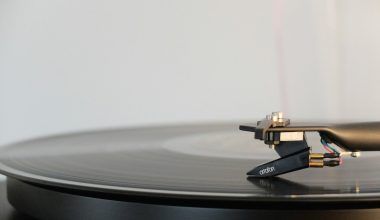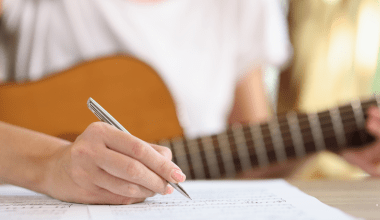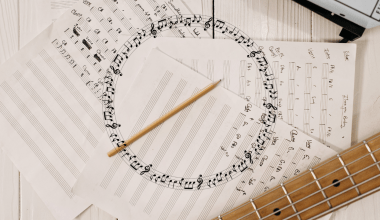Have you ever wondered, “How long does it take to master a song?” Whether you’re an aspiring musician or someone picking up an instrument for fun, this is a question that often pops up. The answer isn’t straightforward because the time it takes to master a song depends on several factors. Let’s dive into what these factors are and how you can set realistic expectations for yourself.
What Does It Mean to Master a Song?
Before figuring out how long it takes to master a song, it’s crucial to define what “mastering” means. For some, mastering a song might mean being able to play all the notes without errors. For others, it might mean adding their own flair, improvisation, or connecting emotionally with the music. So, understanding your goal is the first step.
If you’re aiming to simply play a song perfectly, you might spend less time than someone who wants to perform it flawlessly with confidence in front of an audience. Your personal definition of mastery will heavily influence the timeline.
Factors That Influence the Time to Master a Song
1. Complexity of the Song
The difficulty of the song plays a significant role. A simple tune with repetitive chords will naturally take less time to master compared to a complex classical piece or a jazz solo.
2. Your Skill Level
Are you a beginner, intermediate, or advanced musician? If you’re just starting, even a basic song might take weeks of practice. On the other hand, seasoned musicians might pick up new pieces much quicker.
3. Consistency and Practice
It’s not just about how long you practice but how consistent you are. Daily, focused practice sessions often lead to faster mastery compared to sporadic, unfocused efforts.
4. The Instrument You Play
Different instruments have their own challenges. For instance, mastering a song on the guitar might require finger dexterity, while mastering it on the piano might demand both hands’ coordination. Some instruments, like the violin, require additional time to achieve good tone and intonation.
How to Break Down the Process of Mastering a Song
Step 1: Understand the Song Structure
Start by listening to the song multiple times. Pay attention to the intro, verses, chorus, bridge, and outro. Understanding the structure helps you tackle the piece in manageable sections.
Step 2: Learn the Basics First
Focus on the foundational elements like the key signature, tempo, and chord progressions. Get comfortable with these basics before diving into the intricate details.
Step 3: Practice Slowly
Many musicians make the mistake of rushing through a song. Practicing at a slower tempo allows your muscle memory to build correctly, reducing the chances of mistakes.
Step 4: Work on Challenging Sections
Identify the parts of the song that are giving you trouble and dedicate extra time to them. Sometimes, even a single tricky measure can consume a significant amount of your practice time.
Step 5: Record Yourself
Recording and listening to yourself play is one of the best ways to spot errors and areas for improvement. It also helps you measure your progress over time.
How Long Does It Really Take?
While there’s no one-size-fits-all answer, here are some general guidelines:
- Beginner-Friendly Songs: For simple songs with three or four chords, you might need about 1 to 2 weeks with consistent practice.
- Intermediate Songs: These might take 3 to 4 weeks, especially if they include more complex chords, rhythms, or transitions.
- Advanced Pieces: Highly intricate songs, such as classical pieces or jazz solos, could take months to master.
However, even these estimates depend on how much time you dedicate each day. Practicing for 30 minutes daily will yield different results than practicing for two hours.
Tips to Master a Song Faster
1. Set Small Goals
Break the song into sections and focus on mastering one section at a time. It’s much less overwhelming and keeps you motivated.
2. Use a Metronome
A metronome ensures that you stay on tempo, which is especially helpful for tricky rhythms.
3. Focus on Quality, Not Quantity
Instead of playing the song repeatedly, focus on playing it correctly. Five minutes of focused practice is often more effective than 30 minutes of mindless repetition.
4. Seek Feedback
Sometimes, you can’t notice your own mistakes. Feedback from a teacher, friend, or even online communities can make a huge difference.
5. Stay Patient
Learning anything new takes time. Celebrate small milestones to keep yourself motivated.
The Emotional Aspect of Mastering a Song
Mastering a song isn’t just about technical accuracy. It’s also about connecting with the piece emotionally. Try to understand the story or mood behind the song and reflect that in your performance. This emotional connection often takes time to develop, even if you’ve already nailed the notes.
How Technology Can Help
These days, technology offers tools to make learning songs easier. Apps like Yousician, Simply Piano, or GuitarTuna can provide instant feedback and structured lessons. Additionally, YouTube tutorials can be a great resource for learning specific songs.
Conclusion
So, how long does it take to master a song? It depends on the song’s complexity, your skill level, and your practice habits. However, with consistent effort and the right approach, you can significantly shorten the time it takes. Remember, mastering a song is as much about the journey as it is about the destination. Enjoy the process, and don’t forget to celebrate your progress along the way.
Related Articles:
For further reading, explore these related articles:
- The Evolution and Vibrance of the Indian Music Industry
- Zee Music Company Owner: Shaping the Sound of India
For additional resources on music marketing and distribution, visit DMT Records Private Limited.





